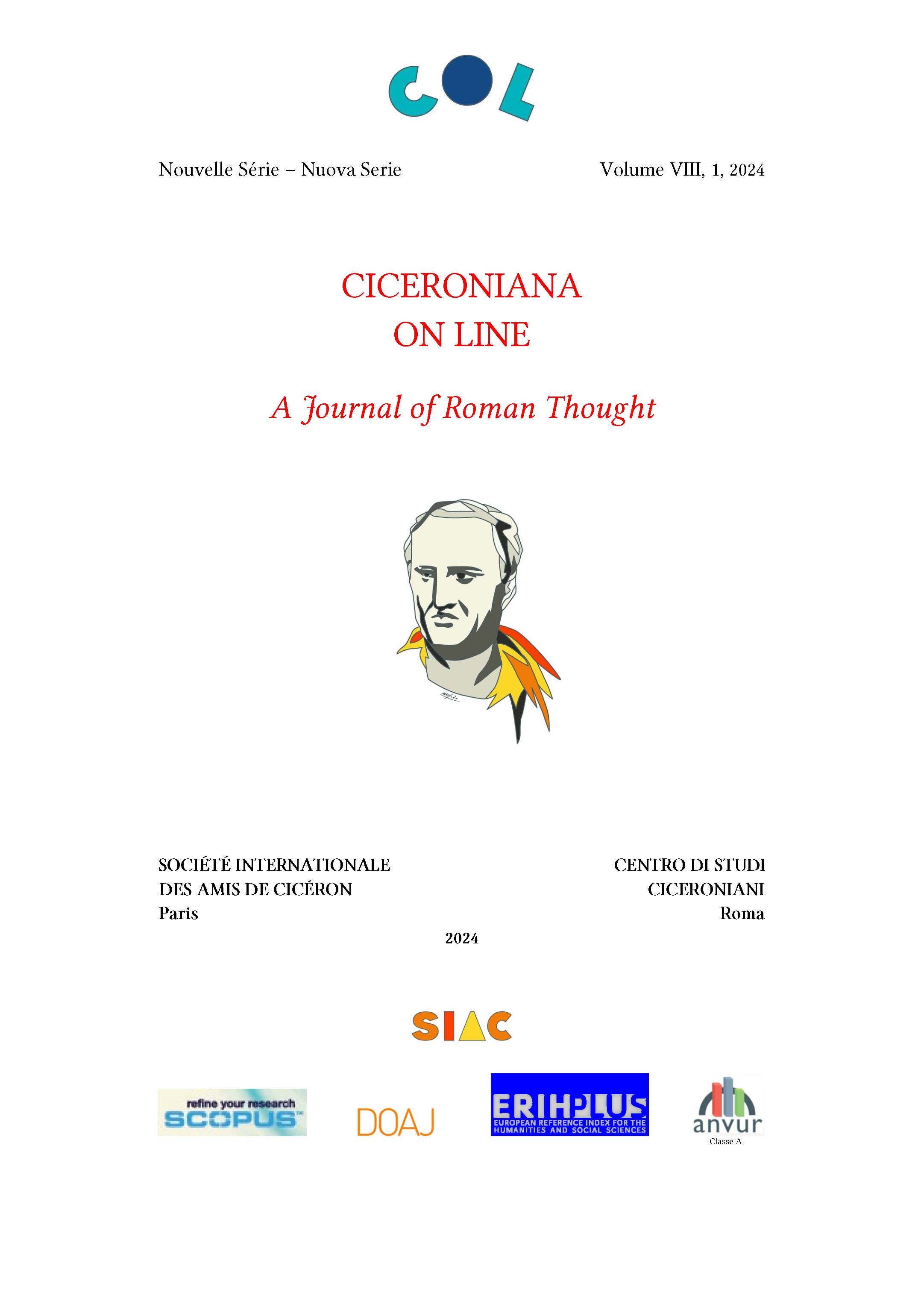Considerations about Partners in Dialogue in Cicero’s Paradoxa Stoicorum
DOI:
https://doi.org/10.13135/2532-5353/10906Abstract
The Paradoxa Stoicorum is a short treatise written by Cicero in the spring of 46 BC focused on six Stoic paradoxa. In this essay Cicero does not limit himself to quoting his Stoic sources: he also applies the Stoic paradoxa to his own Roman world. Therefore, the treatise is rich in allusions and references to Cicero’s Rome. At the time when Cicero was writing the Paradoxa Stoicorum, politics was dominated by the figure of Caesar: in April 46 BC Caesar was appointed dictator for 10 years, and the dictatorship granted him near absolute power in both theory and practice. Some scholars have noted that this treatise is a work of resistance against Caesar’s dominion. The paper analyses one aspect of this anti-Caesarian opposition: since in Cicero’s Paradoxa Stoicorum the discussion of each paradoxon has a dialogical structure and is conceived as a debate between two interlocutors having opposite views on the topic, the article focuses on the choice of these partners-in-dialogue by Cicero, suggesting that they are all figures closely related to Caesar (Clodius, Crassus, Mark Antony) or even Caesar himself.
Downloads
Downloads
Published
How to Cite
Issue
Section
License
Authors who publish with this journal agree to the following terms:
- Authors retain copyright and grant the journal right of first publication with the work simultaneously licensed under a Creative Commons Attribution License that allows others to share the work with an acknowledgement of the work's authorship and initial publication in this journal.
- Authors are able to enter into separate, additional contractual arrangements for the non-exclusive distribution of the journal's published version of the work (e.g., post it to an institutional repository or publish it in a book), with an acknowledgement of its initial publication in this journal.


 Ciceroniana On Line is recognised by ANVUR (the National Agency for the Evaluation of the University System and Research) as a CLASS A journal for the Sciences of Antiquity, Philology, Literature and History of Art (
Ciceroniana On Line is recognised by ANVUR (the National Agency for the Evaluation of the University System and Research) as a CLASS A journal for the Sciences of Antiquity, Philology, Literature and History of Art ( The journal is included in DOAJ. The DOAJ listing of the journals is available at
The journal is included in DOAJ. The DOAJ listing of the journals is available at  The journal is indexed in
The journal is indexed in  The journal has been included in ERIH PLUS. The ERIH PLUS listing of the journals is available at
The journal has been included in ERIH PLUS. The ERIH PLUS listing of the journals is available at 

